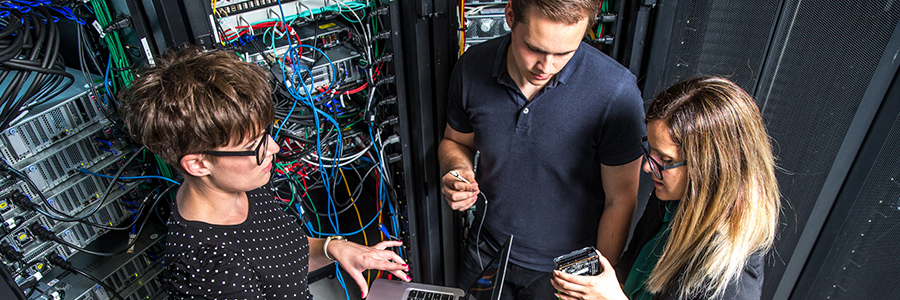Your data backup and disaster recovery strategies are vital to your business’s survival after natural or man-made disasters. Imagine if a remarkably aggressive malware ravaged the data centers where you store crucial business data. Without backups and a disaster recovery plan, you’ll have trouble regaining access to your files, leading to extended downtime for your business and plenty of lost revenue.
In developing your strategies, make sure to avoid the following mistakes:
- Infrequent backups
Taking a long time between backups can lead to some of your data not getting copied and stored, so it’s important to back up as frequently as possible. Select a provider that can backup your data at least hourly. This mitigates the risk of any crucial file being left uncopied and, therefore, inaccessible when you need it the most.
- Not backing up all crucial business data
Smart companies back up ALL their data. Missing even just a tiny bit of business data can cause hiccups in your operations, so make sure to create copies of all crucial company files. Of special importance are files that your company needs to resume operations quickly and properly, such as installation data, spreadsheets, text documents, financial databases, and customer data.
- Mistaking high availability for disaster recovery
Some business owners erroneously believe that high availability is just another term for disaster recovery. In truth, high availability aims to prevent operational interruptions, usually through the use and implementation of redundancies. Using multiple power sources to address power interruptions and leveraging clustered databases to spread out workloads across multiple servers are examples of high availability strategies.
Disaster recovery is for the off chance that your precautions fail. Its goal is to mitigate downtime and return your business to an operational state as soon as possible. Usually, this entails providing you with access to crucial business data through backups. High availability is supposed to go hand in hand with disaster recovery. Mistaking the former for the latter leaves your business extremely vulnerable to major and unforeseen disasters.
- Depending too much on physical storage
Just because physical storage media, such as disks and tapes, are tangible doesn’t mean they are the more secure means to store your data. Both of these are not only easily misplaced, but they are also susceptible to damage from mishandling or improper storage conditions. Worse still, the risk of them being damaged during disasters like fires and hurricanes is very high.
Cloud servers are intangible and located off site, which means they are unaffected by disasters that occur in your locale. Providers also use multiple servers to store your data, ensuring that damage to one server does not erase your business files. Depending on your company’s needs, you may even combine the cloud and on-premises servers to create a hybrid system that offers the best of both options.
- Eschewing automation
Some business owners prefer to have employees back up their data manually instead of taking advantage of regular automated backups, which is problematic because of people’s tendency to make mistakes. It’s possible for workers to improperly back up certain files or forget to copy and store others altogether. Furthermore, human error can leave your business susceptible to cyberthreats, as it has been linked to over 60% of data breaches.
Manual backup is a tiresome process that takes your staff’s time away from tasks that could add value to your company and customers. Automated backups take just a few minutes and can help your employees stay productive and efficient.
- Choosing the wrong backup solution provider
Your backup provider has much to do with the success of your backup strategy, so choosing just anyone to manage your data will increase your risk of failure. Besides looking into a prospective provider’s services, make sure they implement a backup solution with the following features and capabilities:
- Enough space to cover your data – You shouldn’t have to lose crucial files just because your backup solution doesn’t have enough space for it. Founders Technology Group, for instance, can back up and protect up to 2 TB of your company data.
- Quick and reliable data restoration – The best backup solution takes full advantage of virtualization and the cloud to secure your data and ensure it can be restored as quickly as possible.
- Automated data verification – Your provider’s backup solution must be capable of automatically verifying that each backup is bootable when needed.
- Ransomware protection – Ransomware can harm both your files and backups. Choose a provider whose backup solution can detect ransomware before it wreaks havoc on your data.
Developing the best data backup and disaster recovery strategy for your company takes time and careful planning. At Founders Technology Group, we offer state-of-the-art backup services and can help you come up with a setup that matches your needs and goals. Get started by consulting with our experts now.

